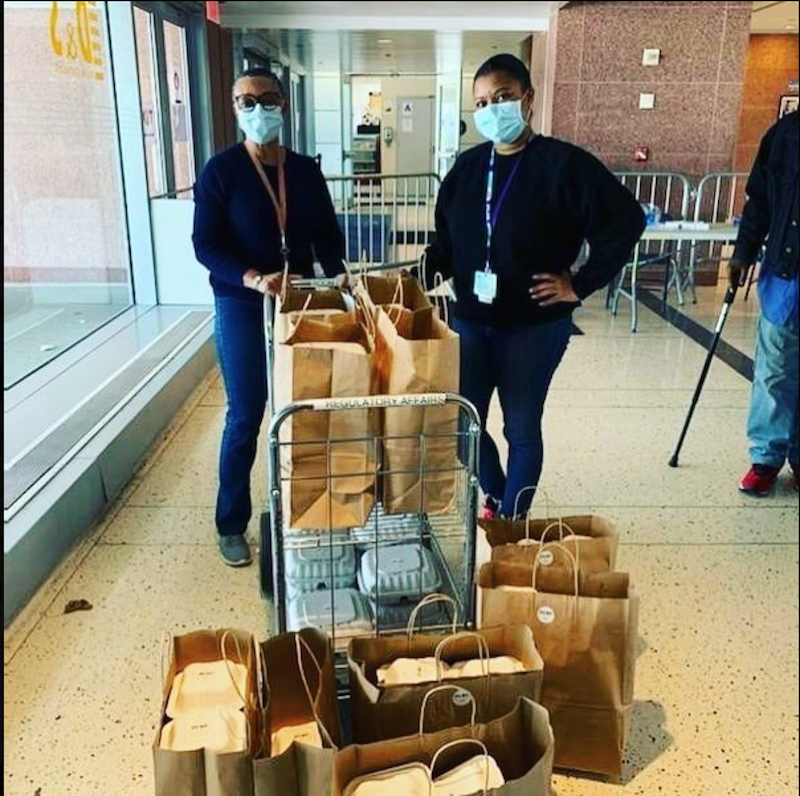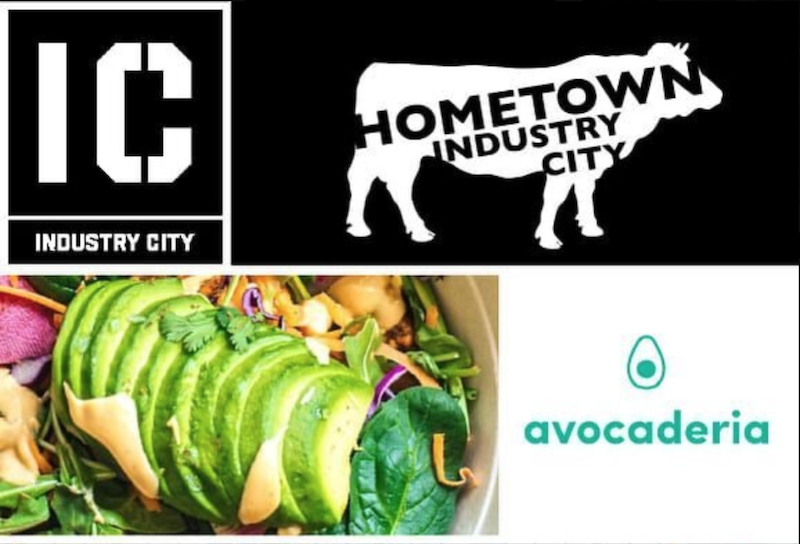Beyond the obvious stresses of the city’s overwhelmed hospitals, adequately feeding nurses, doctors, and healthcare workers has been challenging.
The city’s investing $170 million to feed New Yorkers in general, but organizations, small and big, have rallied to make sure that hospital staff on the frontlines of the devastating coronavirus don’t go hungry either.
Michelle Zassenhaus, a strategist and consultant for startups that lives in Park Slope, said when she conceived of Operation Feed Brooklyn she was feeling kind of helpless.
“I was literally lying in bed,” said Zassenhaus, and looking for a way to help when she ordered from a friend’s restaurant and sent the meal to the closest emergency room. It was well-received.
Her operation has raised over $50,000 in funds for hospital workers in the last month, partnering with Industry City’s Food Hall and other independent restaurants in Brooklyn to provide meals for hospital workers whose cafeterias have been shut down. Places like Avocaderia, One Girl Cookies, Japan Village, Sahadi’s, Hometown BBQ, Kotti Berliner Döner Kebab, Gumption Coffee, and Hunger Pang have all chipped in. Through crowdsourcing, some of these restaurants have opened back up for the drops to keep employees paid.

Similarly, this week former Mayor Mike Bloomberg and World Central Kitchen, founded in 2010 by Chef José Andrés, announced they’d provide daily meals for healthcare workers at NYC Health + Hospitals’ 11 hospitals and five long-term care facilities across the city’s five boroughs.
“As the coronavirus sweeps across the world, health care workers are risking their lives every day to protect ours,” said Bloomberg, “and they need our support now more than ever.”
Bloomberg’s $6 million investment made it possible for World Central Kitchen to begin food drops on Wednesday. The plan is to have a grab-and-go station across all hospitals by April 27. World Central Kitchen is currently taking donations for ongoing meal deliveries.
“There’s actually a lot of people that want to donate but they’re having trouble connecting to someone who can receive it because the hospitals are completely busy and it’s a logistical problem for them,” said Zassenhaus.
Zassenhaus said that sometimes hospitals have donor relations to organize communications when she reaches out. “I’ve also found that these hospitals are so big the right hand doesn’t necessarily know what the left is doing,” said Zassenhaus.
On occasion the food being donated to the ICU or ER was not being received.
“What works the best really is I find out through word of mouth. A friend of a friend knows somebody [who] works with the emergency department at this hospital, and they’re starving,” continued Zassenhaus. “They don’t have any food. They don’t have time to get food. Then we’ll just be put directly in touch with the emergency department.”
Through intake forms on her website or Facebook groups, Zassenhaus finds volunteers to support her organization. They’ve delivered to Maimonides, SUNY Downstate, NYU Langone Health, and occasionally Kings County Hospital.
Hospitals were citing a particular need for vegetarian dishes, which restaurants working within Operation Feed Brooklyn, like Avocaderia, were happy to fill.
Alessandro Biggi is co-owner of Avocaderia. His restaurant sources local and organic foods, and has about 20 employees in rotation so everyone can stay on payroll.
After they receive hospital orders they go to work actually making the high-quality healthy meals they’re known for.
“The morning of, the team gets up pretty early in the morning, and they start the preparation of all the fresh things that need to be made. Vegetables, chicken and so on,” said Biggi, describing an average day. “They start assembling all the different bowls and salads.”
He said they usually make salad and grain bowls with quinoa, kale, brussel sprouts, cabbage, pesto, and avocado of course. The meals are individually portioned and in individual containers, nothing family size that might be contaminated.
The delivery teams aren’t allowed inside the hospitals, but they meet outside with some of the grateful staff from the hospitals with boxes and bags.
Biggi said even though the restaurant missed it’s three year anniversary, he’s proud to focus on helping the city. “There’s a lot of other businesses involved in this thing, and the whole community of restaurants got together. That’s really what should be done more often,” said Biggi.






